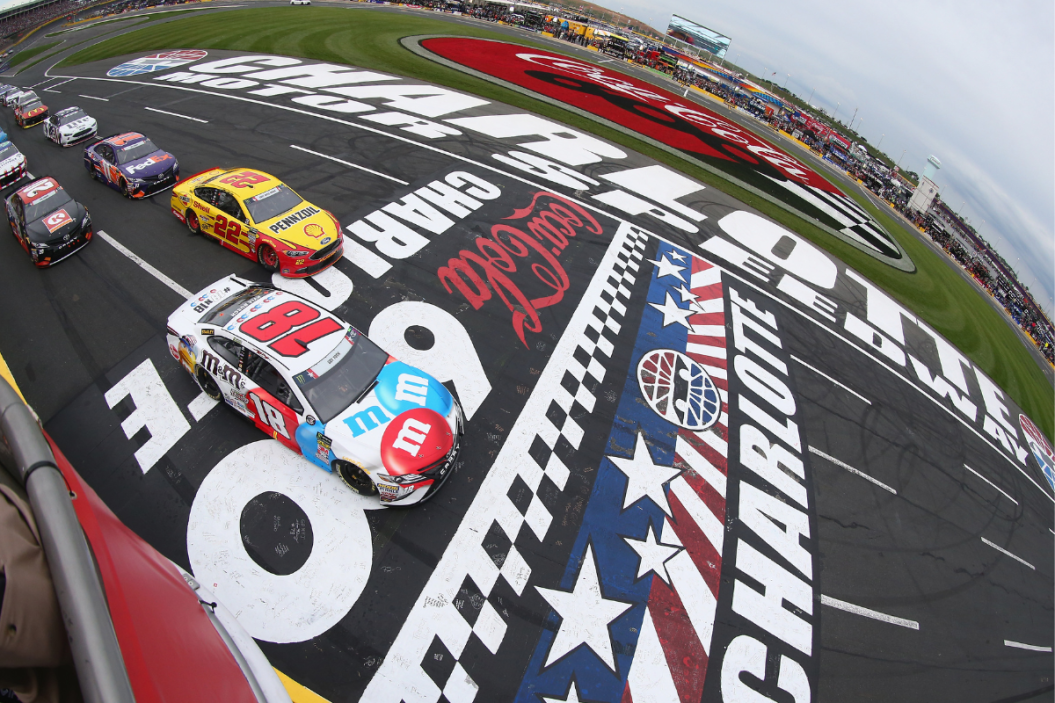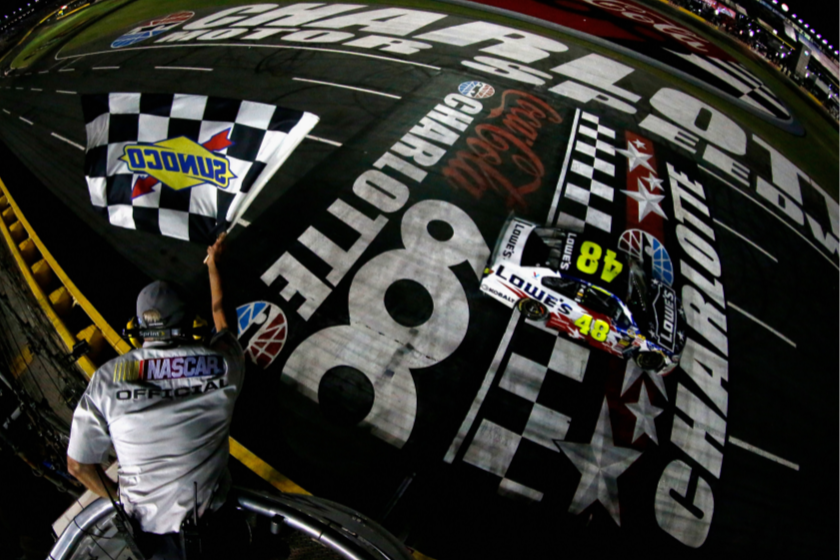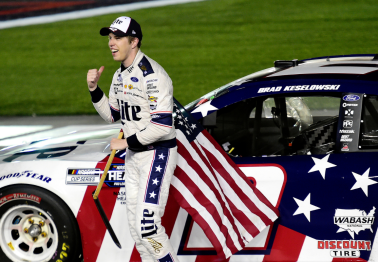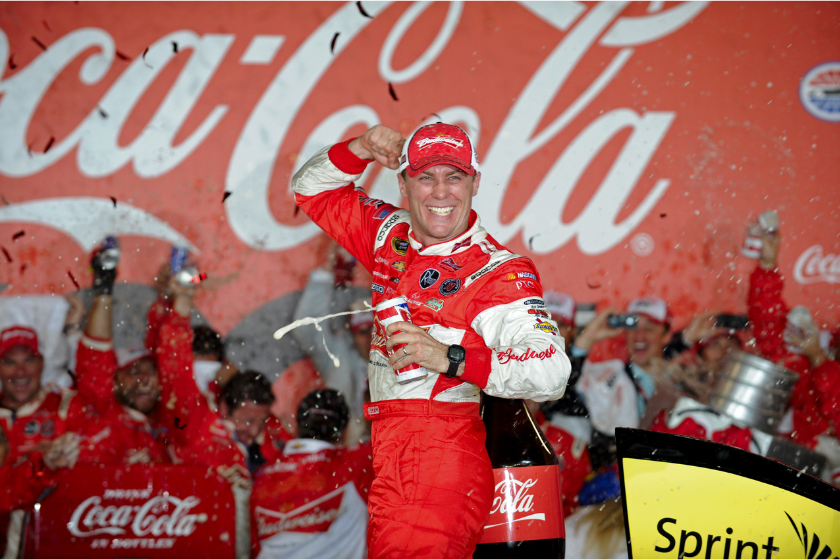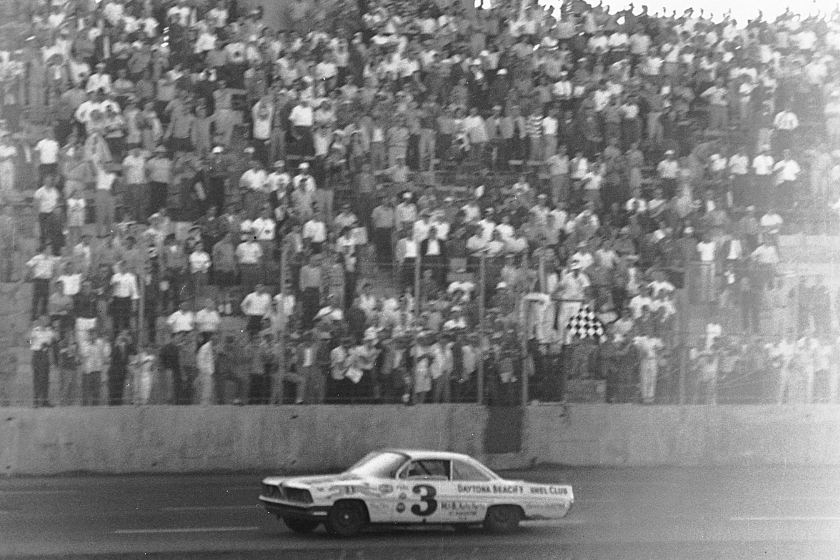As the only 600-mile event on the 36-race NASCAR Cup Series schedule, the Coca-Cola 600 at Charlotte Motor Speedway is truly one of a kind.
It's not surprising, therefore, that many drivers and team members treat the 600 as second only to the Daytona 500 in prestige and notoriety — making it a race that everyone wants to win but relatively few people actually do.
With this year's Coca-Cola 600 slated for its traditional Memorial Day weekend running, let's take a look at three reasons this race will always be a "crown jewel" of the NASCAR Cup Series tour.
It's the Ultimate Test of Man and Machine
For many years and most of the sport's history, 500-mile races were the standard for NASCAR's premier series. Not so anymore.
In fact, only three tracks on the 2023 Cup Series schedule — Daytona International Speedway, Talladega Superspeedway, and Darlington Raceway — continue to host a 500-mile event.
Also bucking the trend toward shorter races is the Coca-Cola 600 — which, since its inception in 1960, has been the only 600-mile race on the Cup calendar. The race typically lasts in the five-hour range, beginning in the evening heat and ending under noticeably cooler nighttime temperatures.
Given the distance — 600 miles, which equal 400 laps on the 1.5-mile Concord, North Carolina track — this is the only race that features four stages, with each consisting of 100 laps.
So, to bill the Coke 600 as the ultimate test of man and machine is more than a catchy slogan. It's reality for the drivers and their crews, who must be both mentally and physically prepared for the marathon-style affair.
"I think the biggest thing about the Coke 600 is your mental state," said Cup Series veteran Kevin Harvick, a two-time Coca-Cola 600 winner who'll be making his final start in the event this weekend. "When they tell you at halfway, it's like, 'Oh, my God, that's only halfway?' That's 200 laps, and it feels like you've run a whole race, and you have the other half of the race still to run."
"So, I think from a mental standpoint, it's hard to wrap your arms around the lap count and all the things that come with a race being that long."
The physical toll the race takes on a driver's body also can't be minimized. As a result, hydration and rest in the days leading up to the event are key.
"Charlotte is a body killer," said Austin Dillon, the 2017 winner of the Coca-Cola 600. "It's a rough track. Six hundred miles there is a grind. ... You just know after years of being in the 600 and being able to win that race that you are in for the long haul. It's a grind because it's so long, and mentally you must stay in it to have a chance to win."
"It all comes down to that last 100 miles. It's probably the most challenging 100 miles we race all year. Leading up to 600 miles you have to be flawless. It's a mental and physical task. The Coca-Cola 600 is a great race to be a part of."
It's a Home Game for Drivers, Teams, and NASCAR Itself
Located in Uptown Charlotte — only about a half-hour from Charlotte Motor Speedway — is the NASCAR Hall of Fame, which opened with significant fanfare in 2010 and is one of two places that NASCAR considers to be an official headquarters (the other is in Daytona Beach, Florida, where the sport was founded in 1948).
Even closer than the NASCAR Hall of Fame to the speedway are the race shops of multiple teams, most notably Hendrick Motorsports, Roush Fenway Keselowski Racing, and Trackhouse Racing — all situated less than 10 minutes from the speedway's front door.
Also close by are Stewart-Haas Racing, Front Row Motorsports, Wood Brothers Racing, Team Penske, Joe Gibbs Racing, and 23XI Racing. A little further up the road, but still within 60 miles of the speedway, are Richard Childress Racing, Legacy Motor Club, and Kaulig Racing. And — not surprising, when considering the proximity of the race shops — most drivers, team executives, and crew members live in the Charlotte metro area.
So, racing at Charlotte Motor Speedway is like racing in the backyard of most every driver's house and most every team's race shop.
"I think when you're in NASCAR racing, you understand that Charlotte Motor Speedway is not only special because it's the home of the Coke 600," Kevin Harvick said. "It's also special because this is really our hub, this is where all the race shops are, this is where all the people are. It's the place where the folks in the industry get to bring their family to the race and enjoy the weekend."
"You're close to home and it's a homecoming event year after year, and it's always a special weekend — especially when you win, because you get to have people in Victory Lane that don't normally get to Victory Lane. So, that's our goal: get people to Victory Lane who don't normally get to go to Victory Lane."
It's a Nod to NASCAR's History
Built in 1959 by legendary track promoter Bruton Smith with input from business partner and legendary driver Curtis Turner, Charlotte Motor Speedway has been a fixture of the NASCAR Cup Series schedule since 1960.
And now that the Coca-Cola is the only race held each year on the speedway's fabled 1.5-mile quad-oval, the race has taken on even more significance. After all, the Charlotte Motor Speedway ROVAL — a 2.28-mile, 17-turn layout that Cup drivers compete on each fall — has only been on the Cup tour since 2018. Charlotte Motor Speedway also used to be the all-but-exclusive host of the NASCAR All-Star Race, but that changed in 2020 when NASCAR began rotating the fan-favorite exhibition among different tracks.
So, if fans want to catch a Cup Series race each year on the Charlotte quad-oval, the Coca-Cola 600 is their only option these days. The quad-oval has hosted 124 points-paying Cup races over more than six decades — tied with Darlington Raceway for fourth-most in series history.
Only Daytona International Speedway (152 Cup races), Martinsville Speedway (149), and Richmond Raceway (133) have played host to more. As for the Coca-Cola 600 itself, Sunday will mark the 64th installment of the race, which was originally known as the "World 600" before Coca-Cola became the race's entitlement sponsor in 1985.
